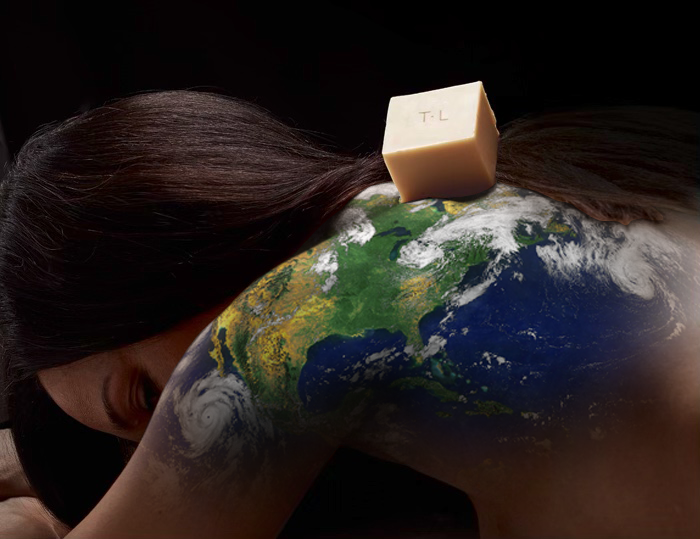
Your Skin is a Planet

Skin is the largest organ of the body. Most of us don't think of it as an organ and very often treat it like we do a t-shirt or pair of jeans, that is to say, not very well. We overwash, causing the need for more products to correct imbalances; we expose it to toxins in the air and in our food; we damage it through overexposure to the sun and cold.
Skin is forgiving...mostly
Thankfully our skin is very forgiving. The epidermis (the outermost layer) regenerates fully about once a month. It repairs itself from most minor scrapes and burns without much fuss. It even builds up a protective layer (callouses) for highly used areas.
Sadly we really don't take the time understand our skin's needs. We are mesmerized and drawn in to marketing telling us of the bounty of products needed to protect and save our skin from the ravages of daily life and time. In reality however, our skin needs very little to keep it happy.
So how is our skin a planet?
CAUTION: Some of the following material may gross you out.
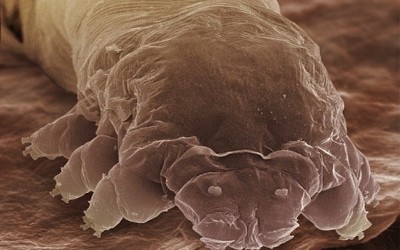
Photo: A microscopic Demodex mite found on human skin.
Every surface of our skin is covered in natural oils and follicles (pores). Most pores have hair growing from them. Some areas are warm and moist like a jungle, some are dry like a desert. Some are full of hair like a forest and some are smooth like the plains. But no matter where you look our skin is populated with millions of tiny organisms; from bacteria to fungi, from viruses to microscopic insects. Most of these organisms however aren't harmful but create a complex biome on every surface. They help to fend off harmful organisms, support our immune system, provide moisturizing effects and more. In short, just like gut bacteria and yeast are necessary and helpful, so is the living planet that is our skin.
The Good, the Bad, and the Necessary

So why do we work so hard to constantly remove all these helpful critters?
Simply put...marketing. Okay well maybe it isn't that simple. There are definite benefits to good hygiene, especially for our high touch surfaces like our hands. Keeping harmful bacteria at bay can save lives. This has become abundantly clear through the pandemic as we've seen the common cold practically skip a season and even the flu hardly make a dent compared to normal times.
But how can we ensure we keep the 'good kind' of flora while removing the 'bad kind'? The answer is simple....literally, simple. The simpler our skin routines, the more our skin can maintain its natural state. The more products we use for cleansing, exfoliating, toning, moisturizing, the more likely we are to disrupt this balance. This isn't to say that cleansing, exfoliating, toning, and moisturizing are bad, we just need to be mindful of how we are affecting our skin each time we do so. Certainly if you wear lots of make-up, that will need to be removed each night. Similarly if you have applied sunscreen or bug spray, this should also be removed. How and with what you remove it becomes key.
What's in a product?
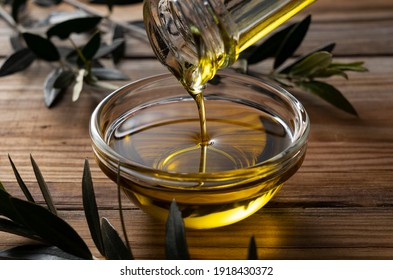
Simple: Look for products with simple ingredients and whenever possible, natural. Sometimes using just water to cleanse can be enough if you haven't applied any strong make-up or other products during the day. While you may need stronger cleansers for removing product from your face, the rest of your body's skin isn't as needy. If you shower every day, using soap every time will be very hard on your skin. Other than areas prone to odour like armpits and the groin, the soap that runs down your body from your shampoo plus the water is enough to clean your skin. If you find the concept of not using soap simply too off-putting, be sure you use a soap that is gentle and doesn't contain ingredients like Sodium Laurel Sulphate or Coconut Oil which can actually be drying. This is especially true for those delicate areas.
Moisturizing: If you find your need for moisturizers after bathing seems to be never-ending, it could be that you are never letting your skin recover it's natural moisturizers and you are altering its PH. Itchy skin directly after showering is a common sign of this. Try different soaps until you find one your skin is happier with. A good quality soap won't strip your natural biome off as radically and ultimately you'll find you won't need to use as much, if any, moisturizer.
Don't forget to water your skin
No I don't mean showering. Think about a plant. If it starts looking dry and droopy you wouldn't wash the leaves and apply cream to them. You'd water the soil so it could get water from the inside. Your skin health reacts much the same way. The better the soil (ie: water and diet), the better your skin health. Keep your skin planet healthy both inside and out with simplicity (and a little T•L•C).


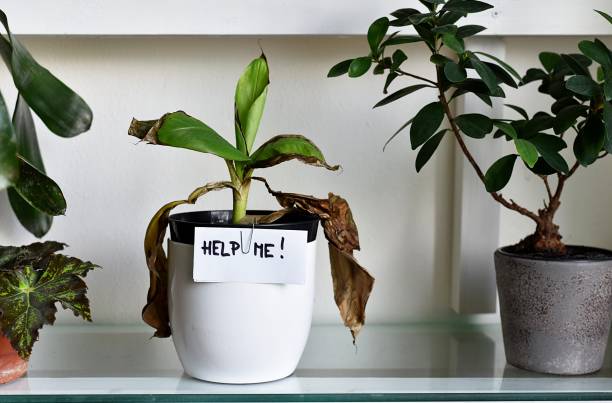
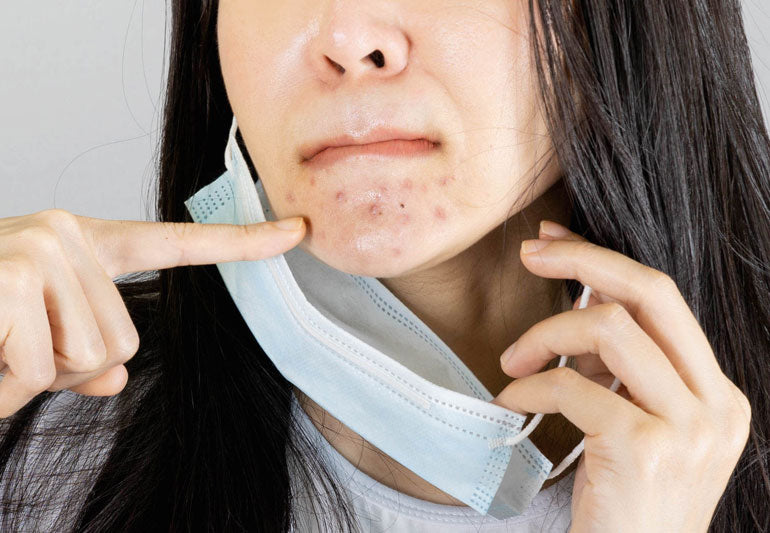

1 comment
I enjoyed the blog very much… You hit the nail on the head! For decades now I’ve only soaped my necessary areas and through the pandemic I’m only washing my hair every 5 to 6 days and I can tell you that my skin and hair approve! You’re beautiful and natural products have been an absolute blessing!
Simpson Georgia
Leave a comment
This site is protected by reCAPTCHA and the Google Privacy Policy and Terms of Service apply.